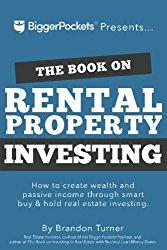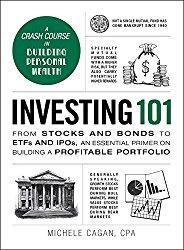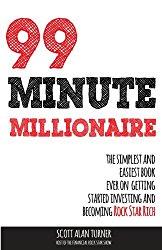If you're interested in investing, you've probably spent some time looking at different websites and blogs on how to invest, and you've probably found several sites giving strategies. There are some sites that give information on different investing strategies. Even more talk about how to do important things like diversify. Once you've spent some time learning, hopefully reading a few books on investing, and you have your financial house in order (no debt beyond your home, $9,000 to $12,000 in a bank account for emergencies, 10-15% of income going into the 401k at work and/or an IRA, and a budget to help control your spending), you may be ready to take the plunge and actually invest. The question then becomes, now what?
If you're investing in mutual funds, it is pretty easy. You just go to one of the mutual fund provider's sites, such as Vanguard or Schwab. You can setup an account, send in funds, and then choose and buy funds, all from the site. That is a big reason many people buy mutual funds - ease of use, in addition to automatic diversification.

SmallIvy Book of Investing: Book1: Investing to Grow Wealthy

If you're looking to invest in ETFs or individual stocks, it is a little harder, but not much. What you will need then is someone called a broker. This is an individual who works with one of the big brokerage houses who has access to the stock exchanges. Personally, I have always invested through a broker and called in orders over-the-phone. I started investing in about 1982, way before the internet, and have just stuck with the same methodology.
I also work with what is known as a full service broker. This means the account has all kinds of extras, and also that I have access to research on stocks and other tools. It also means I pay a good amount when I trade. Typically, if I were to buy shares of a stock for $3,000 say, I would probably pay $60 to $80 for the trade to be made. The amount I would pay would increase if I bought more shares, but the percentage would drop. This is expensive, but then I don't trade very often, so it really doesn't matter much.
Get Your Jam On and Help The Small Investor Keep GoingBuy Your New Tools Here and Help Keep the Small Investor Going

A cheaper way to trade is to use an online broker. Here, you would enter orders through a website and pay a lot less, like $25 per trade or maybe even $5 per trade, depending on the brokerage firm. You would probably not have a specific individual you would deal with, but probably a help desk you would call if needed. In general, there would be few frills like stock research.
A good article ranking online brokers is available through reviews.com here. They evaluated several different brokers to find online brokers that offered both low trading prices and extras like stock research. They really do a nice job of going through the online brokers and providing some great suggestions.






Now just because you may be able to trade for $4.95 per trade through an online broker, doesn't mean that you should be constantly trading. Study after study has shown that those who trade a lot will have dismal returns when compared to the markets. When you are buying and selling short-term, you are basically just flipping a coin and betting on heads or tails. Some studies even suggest that trying to buy individual stocks at all instead of mutual funds is a fool's errand in any case.
I do feel that, in addition to a core of mutual funds, especially in an IRA or 401k account, you should add a few individual stocks, but you need to buy the right kinds of stocks and buy them in the right way. These should be companies that you buy for the long-term. You should pick these companies based on the business, including things like a solid record of profitability and growing earnings, low or no debt, room to expand, and steady growth in the share price. Try to pick just one great company each in a few different industries, rather than spreading the money around to several different companies.
Find stocks you plan to hold for 10-15 years, buy a significant amount (build up to 500 to 1000 shares, buying a few hundred shares at a time on dips), then ignore the noise. Just concentrate on earnings growth and whether the company is expanding their business. Don't worry about analyst ratings, stories about where the economy is going in the next year, or stories about consumer sentiment. Hold as long as the company is doing well, sell off a few shares if the position gets too big, and other wise just leave things alone. Do this and find a great company or two, and you may be able to beat the markets with your individual stock picks.

Have a question? Please leave it in a comment. Follow me on Twitter to get news about new articles and find out what I'm investing in. @SmallIvy_SI
Disclaimer: This blog is not meant to give financial planning or tax advice. It gives general information on investment strategy, picking stocks, and generally managing money to build wealth. It is not a solicitation to buy or sell stocks or any security. Financial planning advice should be sought from a certified financial planner, which the author is not. Tax advice should be sought from a CPA. All investments involve risk and the reader as urged to consider risks carefully and seek the advice of experts if needed before investing.
